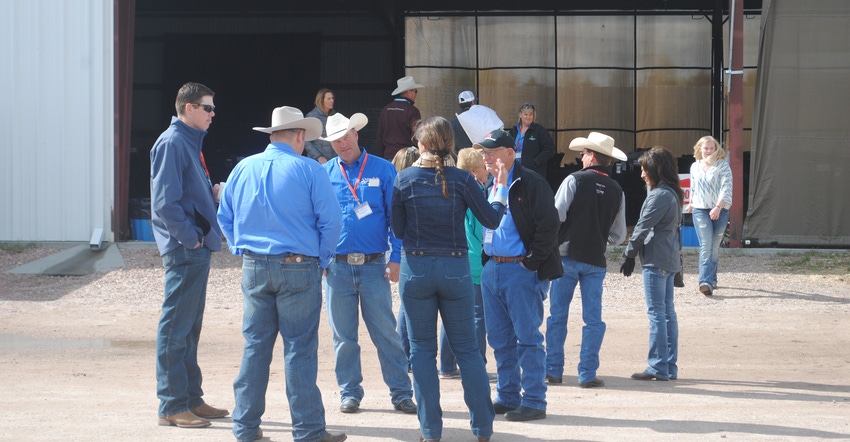
There are two kinds of stress on the farm. There is the kind of stress that comes from regular farming activities, such as getting planting done in the face of an oncoming rainstorm, or caring for baby calves during a late-spring blizzard. These are the kinds of challenges farmers have become accustomed to.
Then there are the true tragedies, such as the floods of 2019, losing a close loved one to COVID-19 in 2020, or losing the farm to financial ruin. These stresses are not only unexpected, but they also can strike quickly and without much warning or time to plan for them.
Nebraska Extension educator Brandy VanDeWalle wrote a news release in March 2019, in the midst of a major blizzard and flooding disasters in Nebraska, about dealing with stress during a crisis. Although parts of the farm economy have been encouraging lately, the repercussions of COVID-19 stresses, coupled with financial strain and other major farm stresses, continue to dog individual farmers and ranchers and their families.
“Our Nebraska Extension publication, ‘Creating a Strong Family: Effective Management of Stress and Crisis,’ points out numerous tips that come from worldwide research on strong families,” VanDeWalle wrote in 2019. “It involves research from more than 24,000 family members in 35 countries.”
From this publication and associated research, VanDeWalle gleaned numerous ideas for coping with stress and crisis that farmers might find helpful even now.
Think positive
“Look for something positive and focus on that positive element in a difficult situation,” VanDeWalle suggested. “Keep things in perspective.” She said that folks under stress need to pull together, not apart, during times of stress. “Don’t see the problem as an individual’s problem, but as a challenge for the whole family.”
VanDeWalle also advised farmers to focus on what is most important and minimize fragmentation. “Without focusing on the essentials, the details can get you edgy and even hysterical,” she said. “Go with the flow, to some degree. Sometimes, you are relatively powerless in the face of crisis. At this point, it can be useful to simply tell yourself to let it go.”
Laugh and cry
VanDeWalle noted that laughing and crying are both essential to maintaining emotional balance in life. “Create a life full of meaning and purpose,” she said. “All people face crises in their lives. You may not be able to avoid these challenges. Rather, your aim can be to live a useful life of service to your community, bringing richness and dignity to your life, in spite of the troubles you endure.”
Suffering, no matter how difficult, can be a catalyst for positive growth. By definition, crisis is a difficult time in life, but it also can be a turning point, VanDeWalle said.
“Identify spiritually with the grand procession of life,” she said. “There is something soothing about the thought that good times come and go, and we, as individuals, come and go, but life from which we all spring is eternal.”
Finally, VanDeWalle suggested getting help from outside of the nuclear family when necessary. “Seek help from extended family members, supportive friends, neighbors, colleagues, members of your religious community, professionals in the community or others,” she said. “It takes a whole village to resolve a crisis.”
Disasters, whether natural or human-made, VanDeWalle added, can leave today’s families in difficult times. While it is easier said than done, it is best to give every effort to embrace a positive approach to deal with a crisis, she said.
Download “Creating a Strong Family: Effective Management of Stress and Crisis” online at extensionpublications.unl.edu.
Read more about:
Covid 19About the Author(s)
You May Also Like






